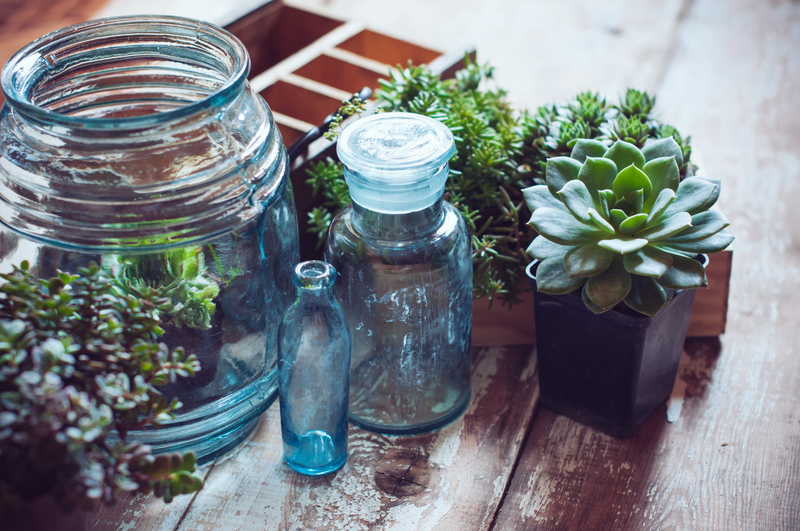Master Sustainable Living with Top Home Recycling Tips
Are you looking to make your home more eco-friendly? Interested in reducing waste and contributing to a healthier planet? Mastering sustainable living with efficient home recycling tips can make a significant difference. In this comprehensive guide, we'll explore top recycling strategies, zero-waste living practices, and sustainable habits you can adopt right at home. Let's embark on the journey to a greener future together!
Why Sustainable Living Starts at Home
Before diving into practical recycling solutions, it's essential to understand why sustainability at home matters. Your household generates a notable amount of waste every week. By practicing sustainable home recycling, you not only reduce landfill contributions but also save resources, cut costs, and support the global effort against climate change.
- Saves money and energy
- Reduces pollution and greenhouse gas emissions
- Preserves natural resources for future generations
- Sets a positive example for your community
Ready to master sustainable living? Let's unravel the secrets to effective home recycling.

The Three R's: Reduce, Reuse, Recycle
At the heart of sustainable living are three key principles:
- Reduce: Minimize the amount of waste you produce.
- Reuse: Find ways to use items multiple times before discarding.
- Recycle: Properly separate recyclable materials and ensure they are processed correctly.
Focusing on these principles helps you optimize resources, lower your carbon footprint, and support a sustainable lifestyle.
Top Home Recycling Tips for Sustainable Living
1. Get to Know Your Local Recycling Rules
Did you know that recycling programs vary from one community to another? Take the time to learn:
- What materials your local recycler accepts (paper, glass, metals, plastics, etc.)
- How to sort different recyclables correctly
- Collection schedules and drop-off centers for special items
Tip: Print or save your city's recycling guidelines and keep them near your recycling bins for easy reference.
2. Organize a User-Friendly Home Recycling Station
A dedicated recycling area makes it easier for everyone at home to participate. Consider these practical steps:
- Label bins clearly: Use signs or color-coded bins for paper, plastics, glass, and metals.
- Place bins where waste is generated: Kitchen, home office, and bathroom are key locations.
- Use stackable containers: Save space while keeping sorting easy.
Organized stations save time and improve recycling rates.
3. Master the Art of Sorting Recyclables
Not sure what goes in each bin? Here's a quick guide:
- Paper products: Newspapers, magazines, office paper (avoid food-soiled items)
- Plastics: Check for recycling symbols (look for #1 and #2 for most curbside pickups)
- Glass: Rinse bottles and jars; avoid broken glass unless specified
- Metals: Aluminum cans, tin cans, clean foil
Remember: Rinse containers to prevent contamination and odors.
4. Composting: Turn Food Scraps into Garden Gold
Organic waste like food scraps and yard trimmings make up a large portion of household trash. Composting is a great way to:
- Reduce landfill waste
- Create nutrient-rich soil for gardens and houseplants
- Lower methane emissions from landfills
Set up a compost bin in your backyard or try a compact tabletop composter for apartments.
5. Upcycle and Reuse Before You Recycle
*Don't toss it if you can use it again!* Upcycling and reusing products is one of the best ways to minimize waste at home. Get creative:
- Turn glass jars into storage containers
- Craft tote bags from old T-shirts
- Repurpose cardboard boxes for organization
Every reused item saves resources and reduces your environmental impact.
6. Safely Dispose of Hazardous Materials
Items like batteries, electronics, chemicals, and fluorescent bulbs require special attention. Many communities have hazardous waste collection events or designated drop-off locations. Never put these items in regular recycling or garbage bins!
7. Know What NOT to Recycle
Wishful recycling--putting non-recyclables into bins--contaminates the recycling stream and makes the process less effective. Common non-recyclables include:
- Plastic bags and film (recycle at grocery store drop-off points)
- Styrofoam food containers
- Pizza boxes with grease or food residue
- Soiled napkins and paper towels
When in doubt, check with your local recycling authority.
Advanced Home Recycling Strategies
Go Beyond the Basics with Specialized Recycling
Ready to take your sustainable lifestyle at home even further? Explore these advanced options:
- Textile recycling: Donate old clothes and linens or use textile recycling programs for worn-out fabrics.
- Electronics recycling: Many retailers and municipalities offer e-waste recycling for gadgets, cables, and appliances.
- Bulk recycling: Coordinate with neighbors for bulk collection of large items, such as furniture and mattresses.
- Terracycle programs: Some companies accept hard-to-recycle items like toothpaste tubes and snack wrappers.
Buy Recycled and Eco-Friendly Products
Support the recycling loop! Choose products made with post-consumer recycled content--from paper goods to clothing. Look for eco-labels when shopping, and prioritize items with minimal packaging.
Reduce Paper Waste
- Go paperless by opting for digital billing and online subscriptions
- Reuse envelopes and print only when necessary
- Subscribe to "opt-out" lists to stop receiving junk mail
Every sheet saved is a step closer to zero-waste living at home.
Sustainable Living Habits Beyond Recycling
Conserve Water and Energy
Sustainable living goes hand-in-hand with reducing resource usage:
- Switch to LED lighting and energy-efficient appliances
- Wash clothes in cold water and air dry when possible
- Fix leaky faucets and install low-flow showerheads
These habits complement your recycling efforts and further reduce your household's environmental footprint.
Buy in Bulk and Reduce Packaging Waste
Eliminate unnecessary waste by buying in bulk. Bring reusable containers when shopping and select products with minimal or recycled packaging.
Educate Your Household
For sustainable living at home to truly take root, involve every family member or roommate. Hold brief "green talks" about recycling, prominently display sorting guides, and celebrate eco-friendly milestones together.
Common Challenges and Solutions in Home Recycling
- Confusion about recyclables: Use city-provided materials or apps like Recycle Coach to clarify sorting.
- Lack of space: Utilize vertical stacking bins; compact items before recycling.
- Forgotten at curbside: Set calendar reminders for pickup days.
- Contamination: Rinse and dry containers; don't bag recyclables unless specified by your provider.
The Benefits of Mastering Sustainable Living and Recycling at Home
Embracing eco-friendly home recycling practices offers numerous benefits:
- Financial savings: Waste reduction means fewer purchases and lower disposal fees.
- Environmental protection: Less pollution, reduced landfill use, and preservation of natural habitats.
- Healthier living spaces: Fewer toxins and cleaner air quality in your home and community.
- Spark positive change: Influences friends, neighbors, and local policies.

Frequently Asked Questions About Home Recycling
What are the most important items to recycle at home?
Focus on materials with high environmental impact: Aluminum cans, paper products, cardboard, glass jars, and #1 and #2 plastics. If possible, compost food scraps as well!
Can I recycle plastic bags with my curbside recycling?
Most municipal programs do not accept plastic bags or film. Instead, return them to dedicated bins at grocery stores for specialized recycling.
Is composting worth it in small spaces?
Absolutely! Countertop compost bins or worm farms make composting accessible even in apartments. You'll minimize food waste and can share finished compost with friends or community gardens.
How can I encourage my family to recycle?
Make recycling easy with visible bins, clear labels, and ongoing education. Celebrate eco-friendly successes and involve the kids with creative upcycling projects!
Conclusion: Start Your Journey to Sustainable Living Today
You don't have to make massive changes overnight to master sustainable living at home. By adopting mindful recycling habits, organizing your space for efficiency, and encouraging your household to participate, you'll make a meaningful impact. Remember, every small action--from rinsing containers to composting banana peels--adds up to protect the planet we all share.
Ready to get started? Set up your recycling station, research your local guidelines, and challenge your family to reduce, reuse, and recycle more every week. Together, we can build homes--and a world--that thrive on sustainability.